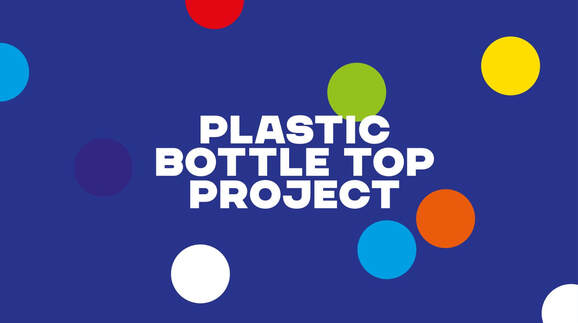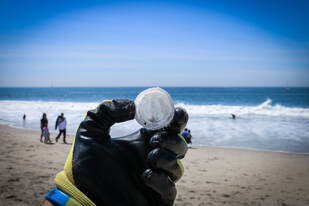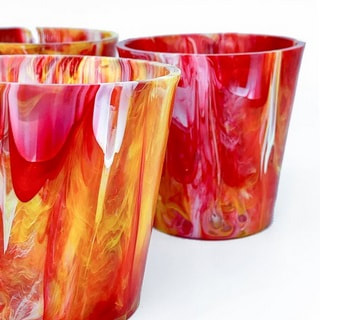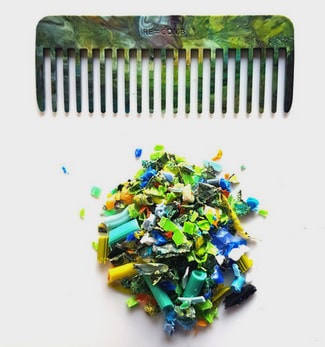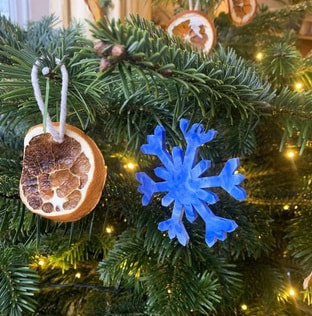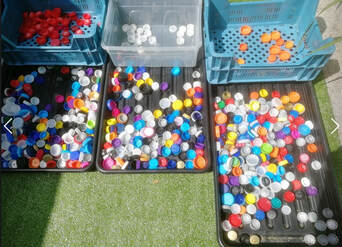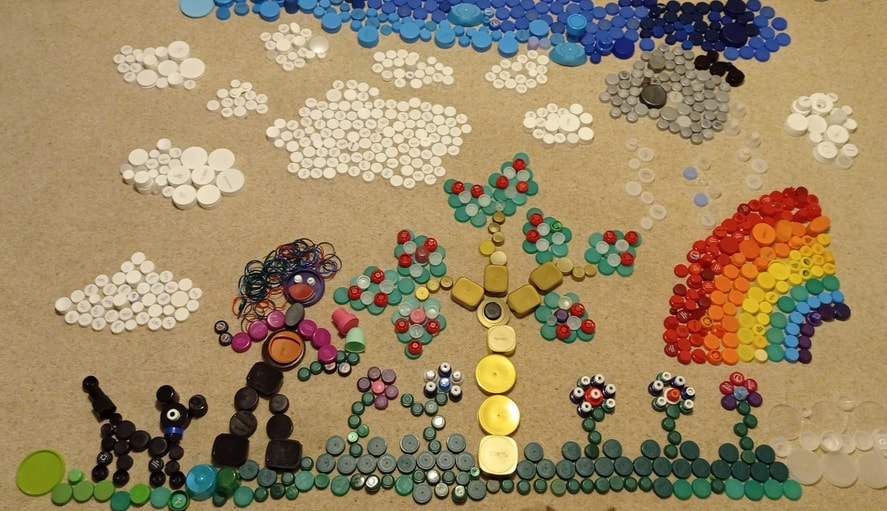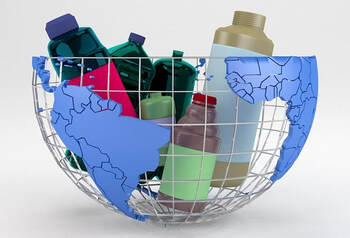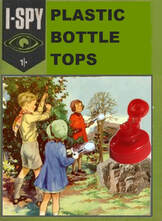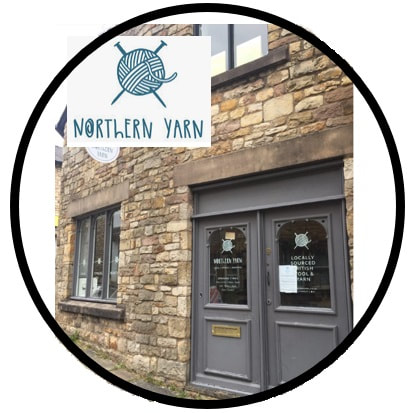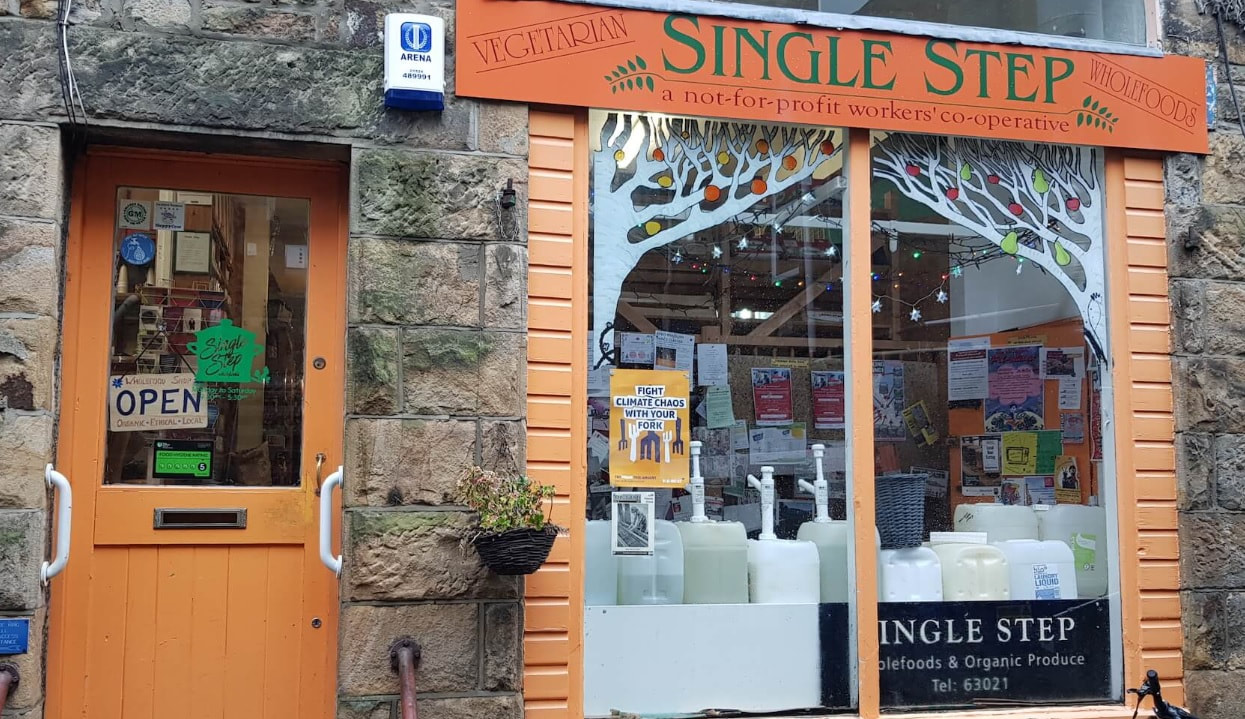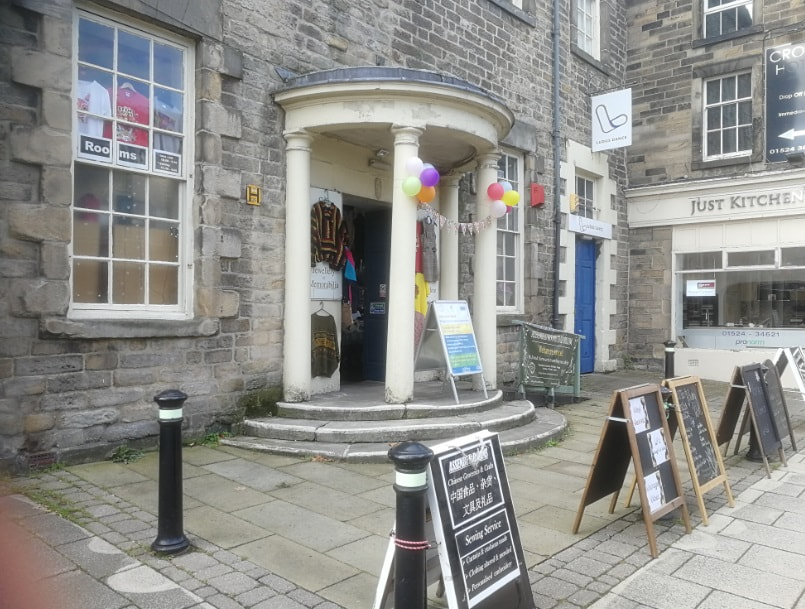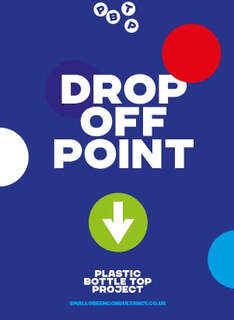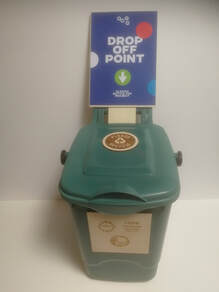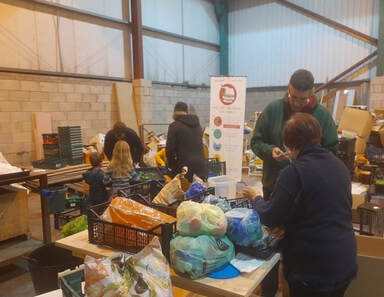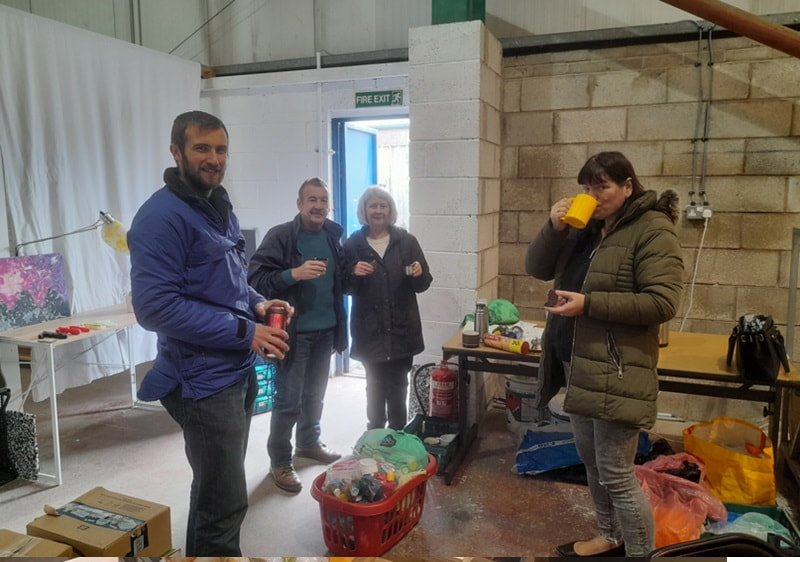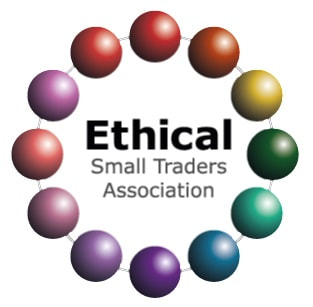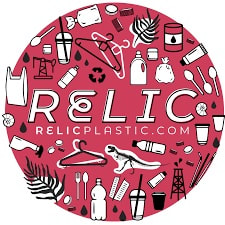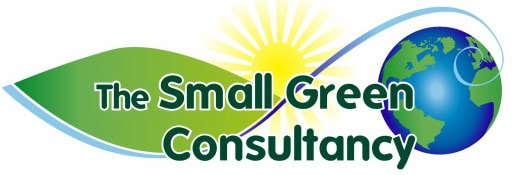The Plastic Bottle Top Project
Plastic has proved to be an essential and versatile material for making a huge range of items used in daily life. Whilst it is best not to consume physical resources at all, especially if we don’t absolutely need to, it can be unavoidable.
If we are going to use natural resources to make everyday items then plastic is flexible, light, versatile and surprisingly low in its carbon footprint than most alternative materials. [1]
The low weight of plastic also saves on energy costs during transportation and at other points in the supply chain. And it is also highly recyclable and can be-re-used over and over again to make new products. [3]
BUT many plastic items don’t get recycled, they simply get thrown away, either to landfill or, worse, ends up in the sea.
If we are going to use natural resources to make everyday items then plastic is flexible, light, versatile and surprisingly low in its carbon footprint than most alternative materials. [1]
The low weight of plastic also saves on energy costs during transportation and at other points in the supply chain. And it is also highly recyclable and can be-re-used over and over again to make new products. [3]
BUT many plastic items don’t get recycled, they simply get thrown away, either to landfill or, worse, ends up in the sea.
|
The lightweight and buoyant nature of plastic makes it easy for water flows to carry, and once an item of plastic finds its way into a water course there is a very good chance that it will end up in the sea, where its very slow breakdown rate will cause havoc with marine wildlife for many decades to come. [4]
So, if we are going to use plastic then someone needs to take responsibility for it……forever! Otherwise its likely to escape and be a constant and persistent threat to the entire marine environment. We need to do this until we can find alternative substitute materials that are much easier to bio-degrade at the end of their useful life. [5] |
Our solution at ZERO Carbon Lancaster is to create a local circular economy for plastic to trap at least some of it in a permanent production-use-re-production loop. This not only diverts a valuable material resource into our local Re-manufacturing economy but also helps to cut import costs and keep more money circulating in our local economy.
We have therefore teamed up with Precious Plastic Lancaster (PPL) to collect plastic bottle tops for them to turn into new 100% re-cycled products.
Why bottle tops? Because they are easy to clean, collect and move around. They also come in lots of different colours that gives PPL a wider variety of uncontaminated colours to work for bespoke and higher quality products, adding value to plastic.
We have therefore teamed up with Precious Plastic Lancaster (PPL) to collect plastic bottle tops for them to turn into new 100% re-cycled products.
Why bottle tops? Because they are easy to clean, collect and move around. They also come in lots of different colours that gives PPL a wider variety of uncontaminated colours to work for bespoke and higher quality products, adding value to plastic.
Bottle tops are usually a different plastic type to the bottle they are attached to which means that when they are bailed in the recycling process, the bulk of material becomes mixed and less valuable.
Plastic bottle tops, being natural ‘little boats’ are also notoriously persistent at finding their way into the sea and are often mistaken for food by animals. [6]
They are also fun to collect and make a satisfying hollow rustling sound when you shake them and run your fingers through them and who doesn’t like collecting things?
We have teamed up with several independents in Lancaster who are serving as collection points for your bottle tops (please make sure they are clean before you drop them off) and will be adding more in Lancaster and Morecambe.
They are also fun to collect and make a satisfying hollow rustling sound when you shake them and run your fingers through them and who doesn’t like collecting things?
We have teamed up with several independents in Lancaster who are serving as collection points for your bottle tops (please make sure they are clean before you drop them off) and will be adding more in Lancaster and Morecambe.
So start collecting now.
|
What to do:
1) Find a nice container to keep your plastic bottle top collection in.
2) Make sure that you wash your tops. Put them in with your washing up. 3) Make sure the tops are dry before you store them. 4) Take them to one of our drop off points in our list of Bottle Top Collection Points: 5) Feel good about what you are doing. |
Bottle Top Drop off Points
|
|
Monthly Sorting Parties
The project hosts monthly sorting parties at the Relic Foundary in Heysham, where we have a community sorting session, complete with tea breaks and traybakes. Working together on something practical is a great way to build community spirit and a sense of community team building. We even manage some networking, whilst we are sorting and tea drinking. Children are welcome under the supervision of their parents/guardians.
Notes
SOURCES:
BPF: British Plastics Federation
WWF: World Wide Fund for Nature
NSF: The North Sea Foundation
Top 10 Fascinating Alternatives to Plastic
- [1] The production of plastic products uses far less energy compared to those made from alternative materials. Substituting plastics with alternatives would increase the lifecycle energy consumption of these products by approximately 57% and the greenhouse gas emissions would rise by 61%. [1] Source: BPF
- [2] Plastics reduce the consumption of oil elsewhere. They reduce the weight of vehicles, aircraft, ships, packaging and products, meaning that less fuel is burnt and CO2 emissions are lower. 80% of a product’s energy consumption comes after the production and manufacturing phase. Source: BPF
- [3] Source: BPF
- [4] “Even if you live hundreds of miles from the coast, the plastic you throw away could make its way into the sea. Once in the ocean, plastic decomposes very slowly, breaking down into tiny pieces known as micro plastics that can be incredibly damaging to sea life. 80% of plastic in our oceans is from land sources” Source: WWF
- [5] “Could these unusual alternatives to plastic propel us toward a cleaner, greener future?” : Source: Top 10 Fascinating Alternatives to Plastic
- [6] “Bottle caps are among the top 5 items found during beach cleaning and beach litter monitoring around the world……Over the last 30 years, more than 20 million bottle caps and lids were found during beach cleaning activities around the world. Currently, it is unknown how many bottle caps actually enter our oceans and wash up on shore.” Source: NSF
- [7] Waste Not Want Not: Living life resourcefully
- [8] ESTA: The Ethical Small Traders Association
- [9] “Nothing About us Without us is For us.“
- [10] Zero Carbon Centre :
SOURCES:
BPF: British Plastics Federation
WWF: World Wide Fund for Nature
NSF: The North Sea Foundation
Top 10 Fascinating Alternatives to Plastic
